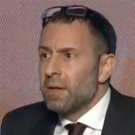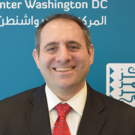Speakers

Susan Akram
Clinical Professor
Boston University School of Law

Dalia Hatuqa
Multimedia Journalist specializing in Israeli/Palestinian affairs and regional Middle East issues

Daniel Levy
President
US/Middle East Project
Moderator
About the Webinar
The Israeli Military carried out a large-scale raid on the Jenin refugee camp in the first week of July, an assault that lasted nearly 48 hours. During the raid the military used heavy firepower, hundreds of troops, and aerial forces, recalling scenes from the Israeli siege on Palestinian cities in 2002. The attack caught the attention of observers and diplomats around the world who have responded with concern and condemnation. By the end of the raid, 12 Palestinians had been killed, thousands of residents had fled during the fighting, and significant damage was done to the refugee camp’s housing and infrastructure. The Israeli military and the Palestinian factions fighting in the camp both declared a victory. Growing calls in Israel for repeated large-scale campaigns in Palestinian cities suggest that the raid in Jenin was not a one-time event but rather the beginning of a wave of Israeli operations. In the days since, several Palestinian attacks on Israelis have taken place, sending a clear signal that the raid escalated existing tensions and that the security situation is primed to deteriorate further.
Arab Center Washington DC convened a panel of experts to discuss what took place in the Jenin camp and what the implications will be for all parties involved. What happened during the two days when the Israeli military raided the Jenin refugee camp? What human rights abuses and legal violations were committed? What led to this operation? What have responses been from the different players involved, including allies and international organizations serving the Palestinian people?
Dalia Hatuqa discussed the Israeli military operation against the Jenin refugee camp, describing it as the biggest escalation since the army’s large-scale operation in 2002. What was shocking, she said, was the obvious Israeli intent of harming civilians and infrastructure and the scenes of people leaving their homes like what happened in the Nakba.
Susan Akram focused on the legal international dimension of the operation and its implications. She said what happened was really a war crime in the context of continuing occupation. So was the intentionality of assaulting civilians and civilian infrastructure. She added that the remarks by PM Benjamin Netanyahu and his ministers about expelling people are proof of criminality.
Daniel Levy examined the political side of the operation as related to the Israeli government and the Biden administration. He stressed that the Jenin operation was not a new thing but a continuation of Israeli policy; except that the assaults have become more frequent. Basically, there are elements of continuity and change in Israeli policy and practice. As for the United States, its position is simply untenable and unsustainable.
Featured image credit: WAFA

